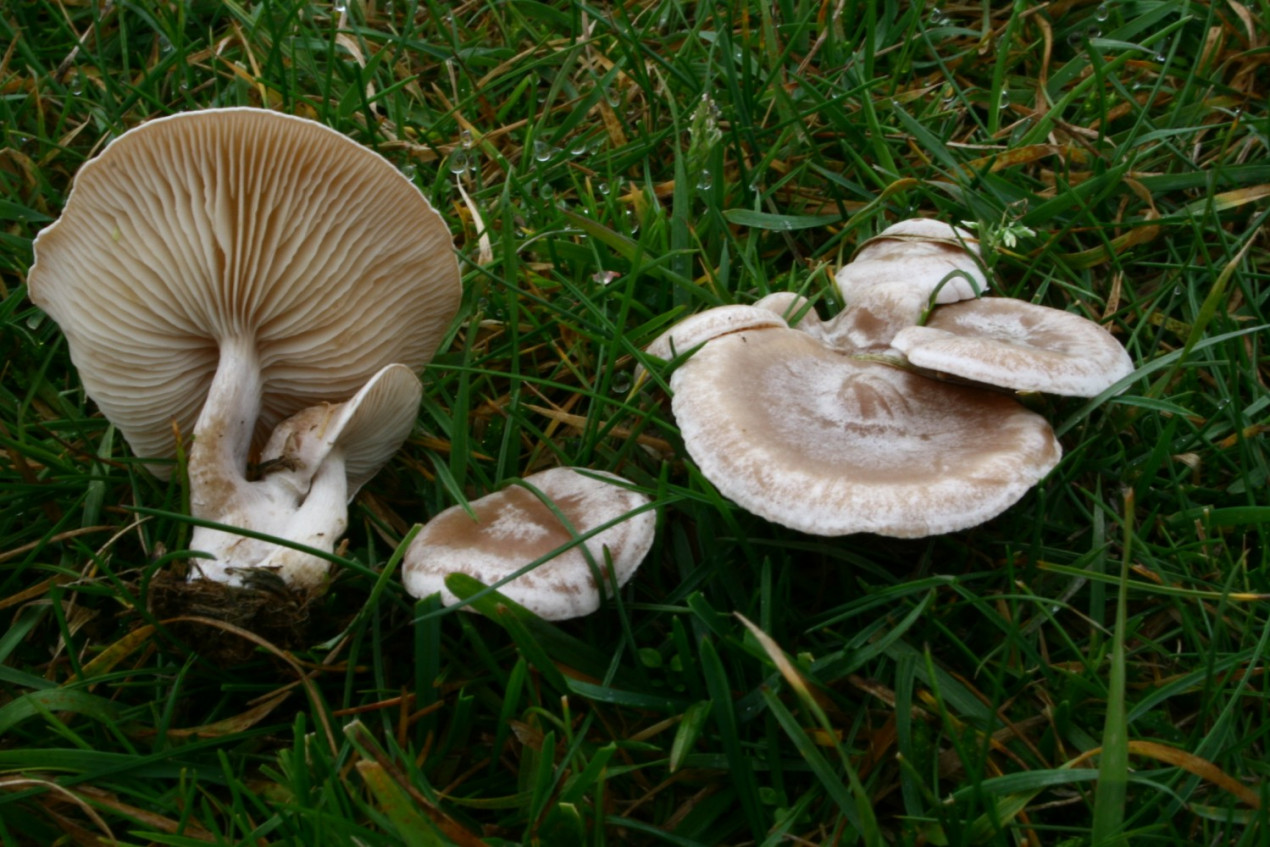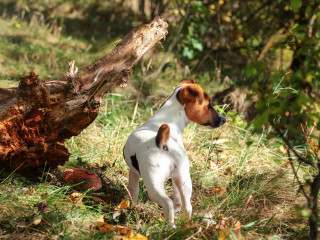We're here to help

The facts about dogs and mushrooms
It’s not uncommon for dogs to come across mushrooms while out walking, particularly during autumn, and some dogs might see them as an interesting snack. But can dogs eat mushrooms? It’s vital that owners know the dangers wild mushrooms pose to their dogs and what to do if they suspect their dog has eaten a mushroom as it could save their life.
Can dogs eat mushrooms?
There are thousands of species of mushrooms in the UK and while most of them are safe to consume, others are extremely dangerous if eaten by our dogs and can cause severe symptoms and death. The difficulty is that identifying non-toxic and toxic mushrooms is extremely difficult. So the safest option is not to let your dog eat any wild mushrooms and contact a vet or, out of hours, your nearest Vets Now immediately if you suspect that they have.
My dog ate a mushroom in the grass, what should I do?
You should always take your dog to the vet if you suspect they have eaten a mushroom while out on a walk. While only a few types of mushrooms are toxic to dogs, it can be difficult to identify exactly what type of mushroom your dog has consumed and whether it is poisonous. If possible, bring the mushroom with you to the clinic as this will help the vet identify the risks and decide on the course of treatment.

Why are mushrooms bad for dogs?
Mushrooms are somewhat of a mystery. There are many varieties of mushroom and, while only a small amount of those that are toxic, it is very difficult to identify which are safe and which aren’t if your dog eats one. For this reason, it’s vital that you always treat wild mushroom ingestion as poisoning and contact your vet immediately to make sure treatment is started as soon as possible.
What are the symptoms if dogs eat mushrooms?
The symptoms of mushroom poisoning depend on the species of mushroom. Toxicity varies between mushrooms and different toxins can affect dogs differently. In many cases, excessive drooling, vomiting and diarrhoea are the first symptoms and can develop into weakness, collapse, and organ failure.
Some mushroom species cause neurotoxicity – leading to drunken like movements, hallucinations, seizures, coma or death.

Are mushrooms growing in my garden dangerous to dogs?
Mushrooms growing in your garden are still considered wild mushrooms and should be removed as quickly as possible so your dog isn’t tempted to eat them.
Can dogs eat store bought mushrooms?
The mushrooms we buy from the supermarket to eat are generally safe for dogs when eaten in small amounts and are therefore are not harmful to dogs.
Can my dog have cooked mushrooms?
While the mushrooms found in shops are generally fine in small amounts, keep in mind that the ingredients used to cook the mushrooms are other ingredients that often accompany mushrooms, such as onions, are toxic and can make your dog very ill.
Which mushrooms are poisonous to dogs?
Mushroom toxicity is ranked from A to D, with A causing the most severe symptoms and D causing symptoms including sickness and diarrhoea.
The list below highlights just a few of the most poisonous mushrooms in the UK:
- Death cap (Amanita phalloides) – which is responsible for the majority of mushroom poisonings globally
- Deadly webcap (Cortinarius rubellus)
- Destroying angel (Amanita virosa)
- Funeral bell (Galerina marginata)
- Fool’s funnel (Clitocybe rivulosa)
- Panther cap (Amanita pantherina)
- Angel’s wings (Pleurocybella porrigens)
How will my vet treat mushroom poisoning in dogs?
Dogs and mushroom are a deadly combination but, unfortunately, there is no proven antidote to treat mushroom poisoning in dogs. Your vet will focus on removing the toxin from your dog’s body. This may involve making your dog sick or using activated charcoal, however, your vet will make the decision based on each individual dog’s circumstances. Intensive supportive care such as fluids and anti-nausea may also be provided.
How can I prevent dogs eating mushrooms?
Methods for preventing dogs eating mushrooms include:
- Avoiding damp, warm, wooded areas
- Keeping your dog on a lead in high-risk areas
- Consider using a basked muzzle when on walks, if your dog tends to scavenge
- Removing any wild mushrooms from your garden
- Teaching your dog the ‘drop’ or ‘leave’ command to ensure they will drop something if told

